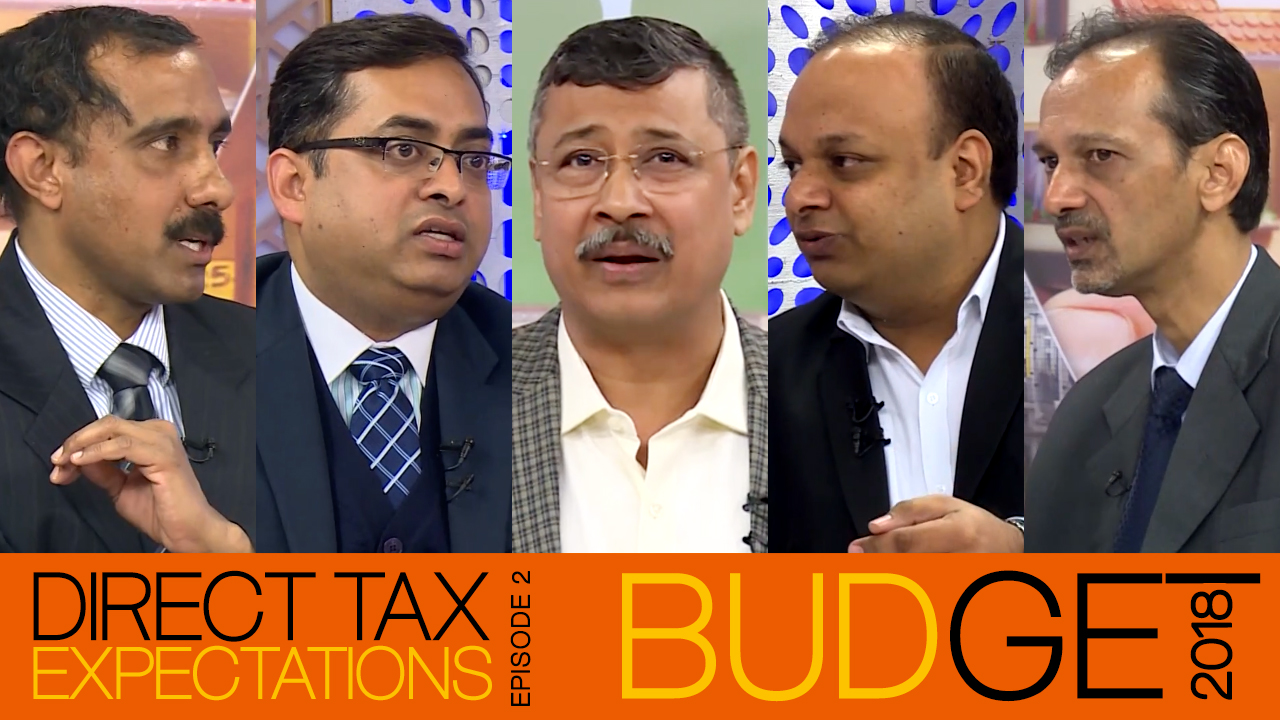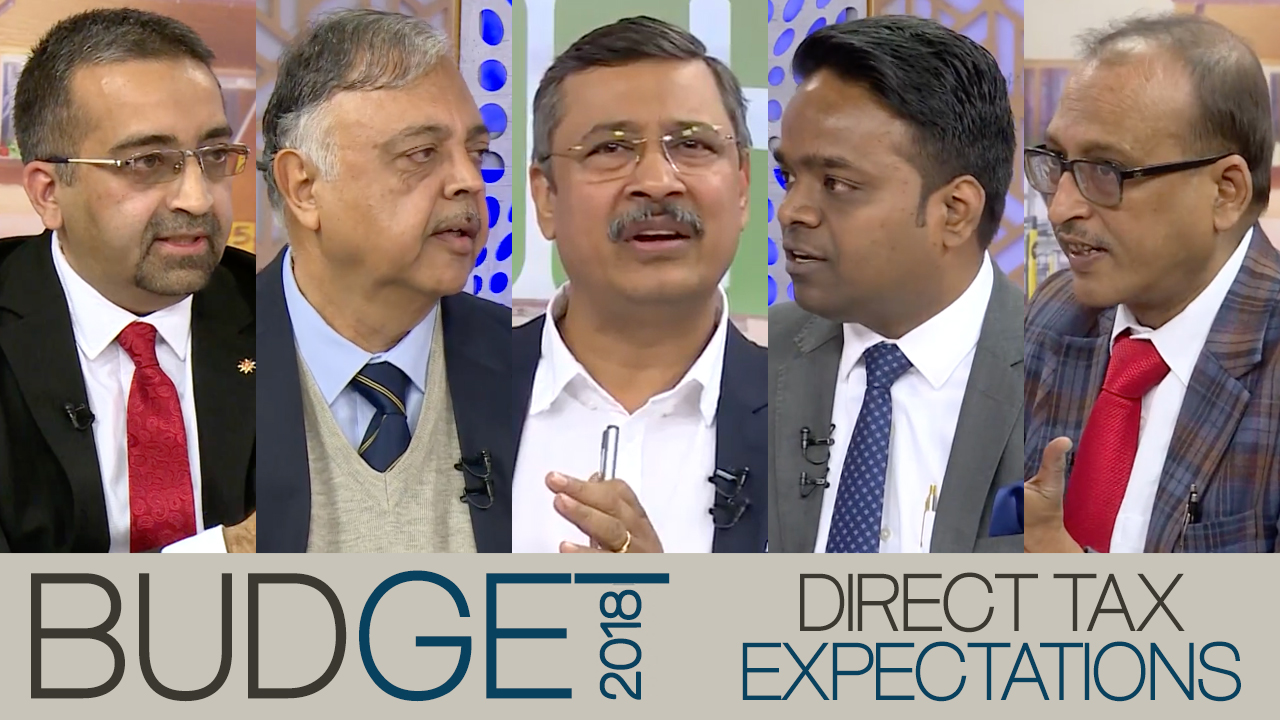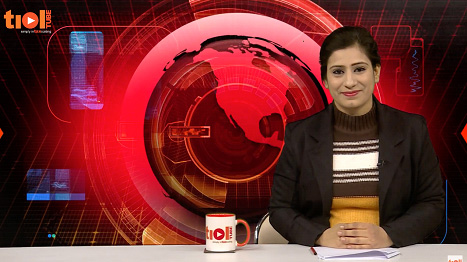|
SERVICE TAX SECTION
2018-TIOL-154-CESTAT-DEL
Anant Commodities Vs CCE
ST - Appellants are engaged in ‘forward contract service' - the dispute is that the appellant is held liable to pay ST on the consideration, which they claimed as turnover charges payable to stock exchange.
HELD: Similar dispute came up before the Tribunal in various cases [recent decision being Final Order No.57391-57395/2017 dated 23.10.2017 in the case of Mohak Commodities Pvt. Ltd.] - it is held that such turnover charges mandated by the stock exchanges, when collected from clients on actual basis and remitted to such stock exchange without any deduction or retention by the appellant, the same cannot be put to liability as part of taxable value - following the above ratio, impugned order set aside and matter remanded to the original authority for a fresh decision based on the submissions and supporting evidences provided by the appellant - appeal allowed by way of remand : CESTAT [para 3, 4] - Matter remanded: DELHI CESTAT
2018-TIOL-153-CESTAT-AHM
Essar Steel Logistics Ltd Vs CCE & ST
ST - the assessee-company received its Service Tax registration about 2 months after the date of its incorporation - The assessee had commenced business operations immediately upon incorporation, and availed some input services essential for providing output services - On registration subsequetly, the assessee paid duty amount with interest - On audit, the Revenue denied credit availed on the inputs utilised prior to registration - Duty demand was raised for recovery of the same, with imposition of interest & penalty u/s 77 of the Finance Act, 1994 -
Held - Immediately after incorporation, the assessee appied for PAN from the Income Tax department, which took some time to be issued - Without PAN the assessee could not have obtained Service Tax registration - This reflected no mala fide intent behind non-registration - Hence penalty imposed u/s 77 & 78 unsustainable - Further, w.r.t. availment of credit prior to registration, considered findings of the Karnataka High Court in mPortal India Wireless Solutions Private Limited vs. C.S.T., Bangalore which already settled the issue - Following the same, availment of credit in the present case was permissible - Demands set aside: CESTAT (Para 2,5,6,7) - Appeal Allowed: AHMEDABAD CESTAT
2018-TIOL-152-CESTAT-BANG
Global E-Business Operations Pvt Ltd Vs CCE, C & ST
ST - Assessee is a wholly owned subsidiary of Hewlett-Packard Global Investment B.V, a company belonging to Hewlett Packard (HP) Group - They provide data processing and other IT enabled services for Hewlett-Packard companies worldwide which are exported - Assessee have filed two refund claims of unutilized CENVAT credit on various input services under Rule 5 of CCR, 2004 for periods October 2011 to December 2011 and January 2012 to March 2012 - Same was partly rejected - Commissioner (A) has rejected refund of assessee on the ground that definition of 'input service' as per Rule 2(l) of CCR, 2004 has been amended to exclude the words activities relating to business from 1.4.2011 and therefore, the CENVAT Credit pertaining to maintenance of building has been rejected - Further, he has observed that assessee has not provided any documentary evidence to justify the nexus between input service of building maintenance and output service - Further, even after the amendment in definition of input service, there is no requirement of correlation between input and output services - Further, in all the decisions relied upon by assessee, expenses incurred towards maintenance of building has been considered to be an input service as per Rule 2(l) of because it is directly connected with the output service - Expenses towards maintenance of building forms part of rent agreement and therefore, there is a nexus between the input service and the services exported - Impugned order is not sustainable in law and the same is set aside: CESTAT - Appeals allowed: BANGALORE CESTAT
2018-TIOL-64-HC-RAJ-CX
Autolite India Ltd Vs CCE
CX - Assessee has challenged the judgment and order of Tribunal where it is observed that the contention that seized goods from auto rickshaw had no marketability and as such no duty could be charged, cannot be accepted as it was never pleaded before the authorities below - Moreover, it is difficult to accept that the seized adopters and rims have no market value - No evidence has also been produced by assessee even to substantiate this plea - The ratio of the law laid down in Sonic Electrochem (P) Ltd. 2002-TIOL-212-SC-CX wherein the criteria for determination of marketability of the goods has been laid down by Apex Court is not attracted to the case in hand, rather it goes against assessee/respondents as it has been observed by Apex Court that essence of marketability is neither form nor in shape or condition of the article, but the commercial identity of article known to the market - Observations made by Tribunal is contrary to record and matter is remitted back to the Tribunal - It is made clear that the matter is remanded only on the ground that finding arrived at by the Tribunal is contrary to the record and judgment which is relied upon by assessee will be considered while deciding the matter afresh by Tribunal: HC - Matter remanded: RAJASTHAN HIGH COURT
2018-TIOL-63-HC-RAJ-CX
CCE Vs Mound Trading Company Pvt Ltd
CX - Department is in appeal against order of Tribunal in 2015-TIOL-3076-CESTAT-DEL - Assessee is manufacturer of confectionary on job work basis for M/s Parle Products Pvt. Ltd. - They had received capital goods from M/s Parle Products Pvt. Ltd. under a rent agreement - Department was of the view that since these capital goods have not been acquired by assessee from a financing company under a lease or hire purchase or loan agreement, they are not eligible for capital goods cenvat credit in terms of the provisions of Rule 4(3) of CCR, 2004 - Tribunal by following their precedent decision in assessee's own case and in case of Wimplast Limited 2014-TIOL-2010-CESTAT-AHM , held that assessee is entitled to take Cenvat credit on capital goods - The judgment which sought to be relied upon by the Tribunal was not challenged - In that view of the matter, the issue is required to be answered in favour of assessee - Liberty is granted to the department to revive the matter in case the view is taken contrary to tribunal decision: HC - Appeals dismissed: RAJASTHAN HIGH COURT
2018-TIOL-151-CESTAT-MAD
Fourrts (India) Laboratories Pvt Ltd Vs CCE
CX - Assessee engaged in manufacture of P or P medicines - During verification of records, it appeared that assessee had adopted cost construction method as per Rule 11 r/w Rule 8 of CEVR, 2000, for arriving at the value of goods cleared free as "Physician samples" and had accordingly discharged excise duty instead of correctly adopting the value as under Section 4 (1) (b) of CEA, 1944 r/w Rule 4 of Rules 2000 - Accordingly, proceedings were initiated proposing recovery of differential duty - On going through SCN, it emerges that while recovery of differential duty has been proposed to be demanded under proviso to Section 11A (1) read with Rule 4 and Rule 8 of Rules, 2002, however, there is no justification or reasoning given in SCN for invoking the extended period of limitation - The SCN thus concedes that ER-1 returns had been filed by assessee however, on the grounds that return has no indication of method of valuation followed for clearances of samples, there has been a conclusion that there was wilful misstatement of facts and contravention of the provisions of Rules, 2002 on the part of assessee with an intention to evade payment of duty - That by itself will not justify invocation of extended period - Assessee have claimed that a letter had been sent to jurisdictional Superintendent stating that they were adopting cost of production as per Rule 11 read with Rule 8 following the Board's circular - In any case, there definitely had been considerable confusion in method and manner of clearance of physician samples - Board's earlier circular dt. 01.01.2002 which advised adoption of residual Rule 11 along with spirit of Rule 8 of Valuation Rules was superseded by another circular dt. 25.04.2005 which advocated that in case of free samples, value had to be determined under Rule 4 of the Valuation Rules - Taking all these factors in mind, impugned demand is hit by limitation, same is legally unsustainable - This being so, impugned order is set aside in toto: CESTAT - Appeal allowed: CHENNAI CESTAT
2018-TIOL-150-CESTAT-DEL
Dsr Steels Pvt Ltd Vs CCE
CX - SCN issued to the appellant alleging that a total quantity of 1775.84 MT of ingots, for which invoices were issued to M/s.Bhushan Steel and M/s.JRM Steels, was received by the appellant and used to manufacture finished products which were cleared clandestinely - demand confirmed, equivalent amount of penalty imposed - appeal to CESTAT.
HELD: Search operations at the factory of the appellant did not result in recovery of any incriminatory documents - during investigation, the department has failed to gather any evidence specifically to establish receipt of the ingots at the factory of the appellant and manufacture of goods out of such ingots -no evidence of clearance of such clandestinely produced final products were unearthed -none of the buyers who might have purchased such goods were identified and questioned - inspite of the assurances given by Revenue before the High Court, the department has failed to give copies of the documents cited in the SCN - the demands raised on the basis of such relied upon documents not supplied to the appellant cannot be sustained - the allegation of clandestine clearance is a very serious charge -the department is required to support such a charge with tangible evidence-in the present case, the allegations of clandestine clearance has not been supported by any tangible evidence -without support of evidence, allegation remains only allegation and cannot be taken as established - impugned order set aside, appeals allowed : CESTAT [para 8, 9, 10, 12, 13] - Appeals allowed: DELHI CESTAT
2018-TIOL-149-CESTAT-DEL
Hindustan Insecticides Ltd Vs CCE & ST
CX - Appellant is engaged in the manufacture of pesticides (DDT) -on the date of manufacturing, the appellant paid the duty provisionally at the applicable rate – appellant wrote to the Ministry for the valuation of the goods – Ministry informed the valuation price for the difference only on 24.3.2014 – duty was paid as per the provisional assessment – however, the final assessment was passed on 21.9.2015 - department has demanded the interest.
HELD: In view of the ratio laid down by the Bombay High Court in the case of CEAT Ltd. - 2015-TIOL-397-HC-MUM-CX , and upheld by the Supreme Court, it is evident that it was not possible to read in the Central Excise Rules, 2002, the liability to pay interest for the period between provisional assessment and payment of differential duty till final assessment - since the payment was made voluntarily before the final assessment which did not result in any dues payable to the Government, so interest is not payable – no justification found in the impugned order, the same is set aside – appeal allowed : CESTAT [para 7, 8, 9] - Appeal allowed: DELHI CESTAT
2018-TIOL-148-CESTAT-BANG
Schneider Electric India Pvt Ltd Vs CCE, C & ST
CX - Assessee engaged in manufacture of digital panel meters and energy meters and are availing CENVAT Credit benefit under CCR, 2004 - A SCN was issued and after following the due process, the adjudicating authority allowed the input service credit on few services and denied on other services - On appeal, Commissioner (A) partly allowed the appeal and rejected the CENVAT credit on furniture and fixtures and climate charges, associate membership, building architect, erection and commissioning charges, installation charges, installation of floor tiles, printer/photocopier and on foreign transaction on the ground that those services do not fall in definition of input service - All these services on which CENVAT credit has been denied fall in definition of 'input service 'as per the explanation against each services - Further, Commissioner (A) has observed that assessee have not produced documentary evidence to substantiate their claim; whereas, assessee has stated that they had produced the documents but still the Commissioner (A) has not seen the documents though the assessee had attached the copies of challan, statement showing computation, sample bills along with the present appeal - In view of the fact that all the input services fall in the definition of 'input service 'as held by various decisions, appeal of assessee allowed and matter remanded to adjudicating authority for verification of documents wherever the documents have not been produced: CESTAT - Matter remanded: BANGALORE CESTAT
CUSTOMS SECTION
NOTIFICATIONS
cnt04_2018
Jurisdiction of Customs Officers for the purpose of appeals - amendments made to notfn. 92/2017-Cus(NT)
cnt03_2018
Appointment of Commissioners, Additional/Joint Commissioners, Deputy/Assistant Commissioners of Customs - amendments made to notfn 82/2017-Cus(NT)
CASE LAWS
2018-TIOL-65-HC-RAJ-CUS
CC Vs Indian Airlines Ltd
Cus - Whether the Tribunal can override statutory provisions enshrined in law in as much as second proviso to Section 114A of Customs Act, 1962, has been ignored in reducing the penalty wherein specific provisions are enlisted that the benefit of reduced penalty shall be available only when penalty is paid within 30 days of the date of communication of the Order which is not in the present matter - Issue is squarely covered by decision of this Court in M/s Lucky Plast Ltd. 2015-TIOL-2963-HC-RAJ-CX , wherein the Division Bench of this Court while considering the matter, decided the issue in favour of department - In view of same, issue is answered in favour of department: HC - Appeal allowed: RAJASTHAN HIGH COURT
2018-TIOL-62-HC-MAD-CUS
Jaap Auto Distributors Vs Asst.CC
Cus - Petitioner has challenged the impugned order whereby the respondent has denied the petitioner's claim for the benefit of a notification with respect to description of the goods under serial no.196 of Schedule II of notification 1/2017-Integrated Tax (Rate) , dated 28.6.2017, (as amended) at 12% and, accordingly, ordered that the correct serial number to be claimed for IGST is serial number 453 of Schedule III of the notification at 18% -accordingly, the respondent ordered re-assessment of the bill of entry.
HELD: Petitioner submitted themselves to the jurisdiction of the respondent in appearing before the respondent and requesting for an order with reasons - the petitioner did not dispute the classification under entry 84329010, but submitted that the correct rate of IGST should be at 12% -the respondent has taken a decision by classifying the goods by fixing the rate of tax at 18% and in support of such conclusion has given certain reasons -exercising jurisdiction under Article 226, this Court does not propose to venture into as what would be the appropriate classification of the goods as this exercise being a factual exercise has to be necessarily agitated before the appellate authority – writ petition dismissed as not maintainable – Petition dismissed : HIGH COURT [para 6, 7] - Writ Petition dismissed: MADRAS HIGH COURT
2018-TIOL-162-CESTAT-MUM + Story
Lynx Express Pvt Ltd Vs CC
Cus - Appeals against the order passed by the Principal Commissioner of Customs and the order passed by the Chief Commissioner of Customs.
Held: Bench had directed the AR to ascertain from the government whether the Chief Commissioner is appointed as appellate authority or Revisional authority under the Courier Imports and Exports (Clearance) Regulations, 1998 for hearing grievance of the aggrieved against the order of the Principal Commissioner –What is agitated is whether Regulation made by the Board authorizing Chief Commissioner to hear a representation is a bar to the remedy of appeal to the Tribunal - It shows that the Chief Commissioner is not vested with any quasi- judicial power except the power of supervision of his subordinates in terms of the relevant regulation authorizing him to hear a representation against order of Principal Commissioner - Therefore, it is high time Board should come out with a proper amendment to law or explain to the Tribunal as to whether the order passed by the Chief Commissioner is in his administrative capacity or in quasi-judicial capacity and whether his order is subject to judicial review by the Tribunal - if no reply is received by the Tribunal by 1st January 2018 it shall be treated that Chief Commissioners order under the above Regulation is an appealable order before Tribunal and Tribunal shall proceed with the matter as an appeal filed against his order – Order to be marked to the Secretary to the Government of India, Department of Revenue, Ministry of Finance for appropriate guidelines so that matter of public interest is addressed with utmost expedition – Matter listed on 10.01.2018: CESTAT [para 1, 3, 4] - Matter listed
: MUMBAI CESTAT
|
|




 by Shailendera Kumar
by Shailendera Kumar 




